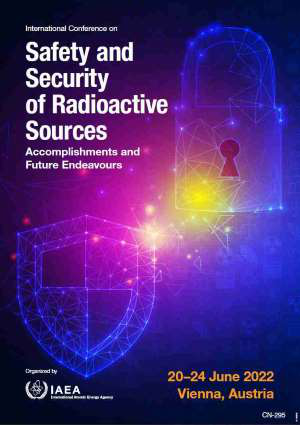Speaker
Description
In Ghana, radioactive sources are used daily and widely in medicine for both diagnosis and treatment such as radiotherapy, in the mining, oil and gas and in agriculture for human prosperity and wellbeing. Radioactive sources are also applied in research and education, industry and the military and are found throughout the world. Due to the widespread use of these sources, there is emphasis to manage them safely and secure them. The 1998 International Conference on the Safety of Radiation Sources and Security of Radioactive Material noted the need to prevent both theft and accidents. It is important to note that when radioactive sources are safely managed and securely protected, the risks to workers and the public are minimized. However, if a radioactive source gets out of control and unshielded or its radioactive material is dispersed as a result of either an accident or a malicious act, the danger of radiation exposure becomes very real. There is high probability that these sources can be smuggled, lost, stolen, abandoned, or even used for malevolent actions. The risk of radioactive sources being outside of regulatory control can be minimized by ensuring that safety and security principles are efficiently integrated through the staff by training them and ensuring that the staff adheres to both safety and security requirements. The fundamental goal of radiological security is to prevent radiological terrorism thereby focusing on deliberate acts that are intended to cause harm. Radiation science and technology programs that offer training and capacity-building opportunities to practitioners working in radioactive sources and associated facilities play a central role in strengthening the global radiological security regime. The school of Nuclear and Allied Sciences of the University of Ghana has trained a number of students in the area of radiation protection and safety. The school has recently introduced Nuclear and Radiological Security in the existing Masters and Phd programmes. Ghana has participated in a number of International Atomic Energy Agency’s (IAEA) trainings, workshops and fellowships on radiological safety and security held locally and internationally. Ghana has maintained a close collaboration with all stakeholders at the national level to facilitate the development of human capacity in the area of nuclear safety and security. Ghana extended its full cooperation with the International Atomic Energy Agency for the development of nuclear security educational networks, such as the International Nuclear Security Education Network (INSEN), and the Nuclear Security Support Centers (NSSC) Network which has been able to establish strong collaborations with other institutions within and outside Ghana. This paper focuses on radiological security capacity building in Ghana through education and training. It aims to provide a model overview of how radiological security human capacity development is carried out in Ghana. This paper is an opportunity to share Ghana’s experience and lessons learned.
| Country OR Intl. Organization | Ghana |
|---|

